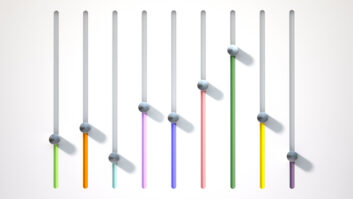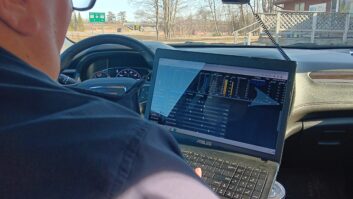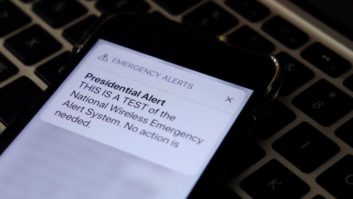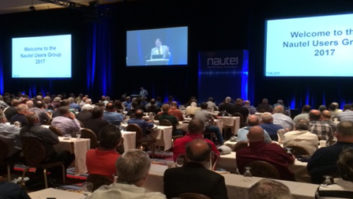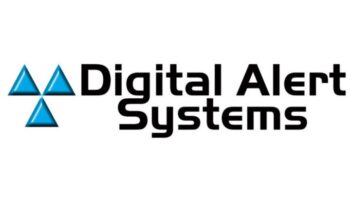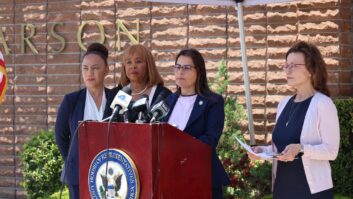Note: Times for the February webinars have been corrected to “a.m.”
A new year ushers in the next regional IPAWS test. As we’ve reported, the Federal Emergency Management Agency will conduct a test of the Integrated Public Alert and Warning System in certain states on Feb. 24 at 2:20 pm EST.
(See “Next Regional Alert Test Is a Biggie”)
In advance of that test, FEMA is disseminating specific technical info about a new filter required for some stations. The test message will use the National Periodic Test (NPT) event code with an audio message that sounds like a typical Required Monthly Test text.
A number of states will be part of the test, including most of the East Coast and large sections of the South and Midwest. As a result, broadcast radio stations within this testing area may need to configure a new incoming filter using the event code “National Periodic Test.” FEMA also announced that the new NPT incoming filter should have the originator listed as “Primary Entry Point.”
The NPT code “was among the original event codes specified when EAS was first established, but there was no published definition or procedure established at the time,” said Al Kenyon, IPAWS national test technical lead for the IPAWS program office within FEMA. Lacking specific direction, EAS device manufacturers included the event code in their device menus but did not program any specific response or action to be taken upon receipt of an NPT, with the exception of equipment from Gorman-Redlich, he said.
“Given that the default EAS device configuration calls for the device to ignore NPT, stations must take some action to cause their EAS device to forward an incoming NPT in order to participate in the IPAWS/EAS test,” he said.
As a result, the FEMA IPAWS office is asking all stations that will participate in the Feb. 24 test to configure their EAS devices to forward the NPT event code message upon receipt. “To do that, stations must adjust what most EAS device manufacturers refer to as an incoming message filter,” Kenyon said.
States participating in the Feb. 24 test include Alabama, Arkansas, Delaware, D.C., Florida, Georgia, Illinois, Indiana, Iowa, Kansas, Louisiana, Maryland, Mississippi, Nebraska, New Jersey, New York, North Carolina, Oklahoma, Pennsylvania, Puerto Rico, South Carolina, Texas, the U.S. Virgin Islands, and Virginia.

Some stations may need to contact their EAS equipment manufacturer to ensure that their system is ready for the test. Some manufacturers have created procedures to show stations how to add an NPT filter.
Information for the Sage Alerting Systems 3644 ENDEC gives an example of what FEMA is asking stations to do (to view the procedure, click on image at right).
The Digital Alert Systems DASDEC-II allows users to enable both the national all-zero location code and the NPT event code for automatic forwarding; these need to be manually enabled by the user (view the steps here). “These settings changes are sufficient if a station wants to voluntarily participate in the upcoming FEMA NPT test,” said Edward Czarnecki, senior director of strategy and global government affairs for Digital Alert Systems/Monroe Electronics.
Stations using other EAS systems should contact their manufacturers directly.
WEBINAR SCHEDULE
To get stations up to speed on what will be required in the Feb. 24 test, FEMA has organized several non-technical and technical webinars. The seminars will take place on the following dates, and can be accessed via the links shown. Attendees should log on to the event address to register, or can call in with the following access codes. All three technical seminars will cover the same material.
Non-Technical Webinar: Wed., Jan. 20 at 2 p.m. Eastern
Audio Call In: 650-479-3207
Access Code: 669 459 206
Technical Webinar I: Thursday, Jan. 28 at 2 p.m. Eastern
Audio Call In: 650-479-3207
Access Code: 665 717 452
Technical Webinar II: Wednesday, Feb. 3 at 10 a.m. Eastern
Audio Call In: 650-479-3207
Access Code: 662 357 165
Technical Webinar III: Tuesday, Feb. 9 at 10 a.m. Eastern
Audio Call In: 650-479-3207
Access Code: 667 519 455
